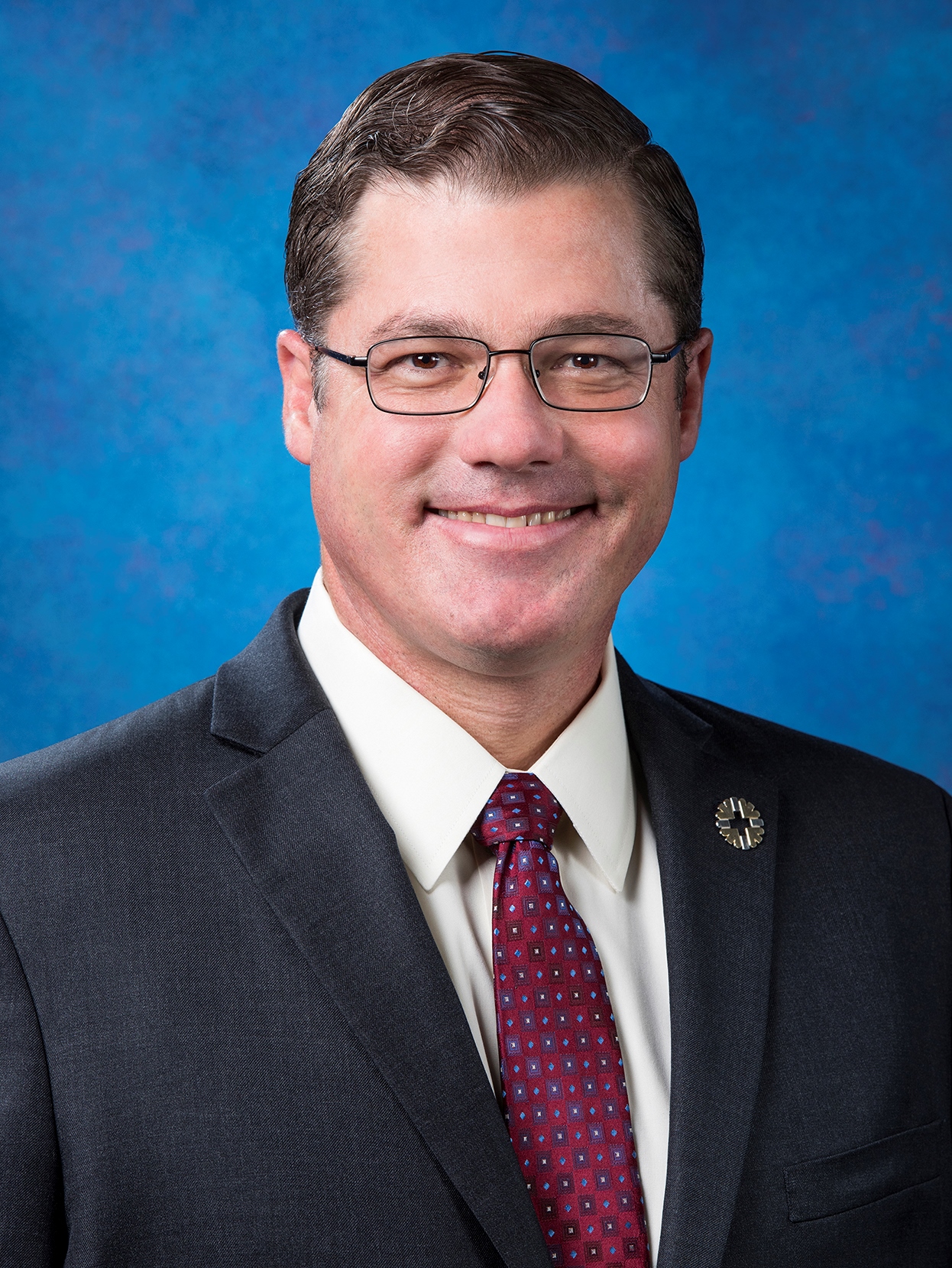In June 2015, John Bishop made the leap from CFO of three Fountain Valley, Calif.-based MemorialCare Health System hospitals to CEO.
Mr. Bishop's background in finance combined with his proven leadership experience propelled him across the CFO-CEO divide.
At the helm of Long Beach Memorial Medical Center, Miller Children's & Women's Hospital Long Beach and Community Hospital Long Beach, Mr. Bishop is responsible for setting the strategic direction for each entity and for overseeing more than 9,000 employees, affiliated physicians, volunteers and associates.
Prior to his current appointment, since 2009, Mr. Bishop served as CFO of the three MemorialCare hospitals in Long Beach, as well as CFO of Seaside Health Plan. He has held executive roles with MemorialCare Health System since 2004, starting as CFO of Saddleback Memorial Medical Center in Laguna Hills and San Clemente. Before that, Mr. Bishop worked for 12 years as a certified public accountant with Ernst & Young, consulting with some of the nation's most renowned healthcare organizations.
Here, Mr. Bishop took the time to answer Becker's Hospital Review's seven questions.
What's one thing that really piqued your interest in healthcare?
My dad was in healthcare. He was president of Allergan Pharmaceuticals and Medical Optics. By my third year at Ernst & Young, 100 percent of  my clients were in healthcare. So I was able to see all aspects of healthcare delivery and how they related to each other — from health systems, hospitals and medical groups to HMOs, PPOs and medical foundations. I was also able to see the tremendous impact that healthcare organizations can make in the lives of the communities they serve and I felt drawn in by that atmosphere.
my clients were in healthcare. So I was able to see all aspects of healthcare delivery and how they related to each other — from health systems, hospitals and medical groups to HMOs, PPOs and medical foundations. I was also able to see the tremendous impact that healthcare organizations can make in the lives of the communities they serve and I felt drawn in by that atmosphere.
What do you enjoy most about Long Beach?
Even though it's one of California's biggest cities, Long Beach is a tight knit community where people are proud to live here and a have sense of community — something my entire family enjoys. And while our main campus with the large adult teaching and children's hospitals comprises the second largest hospital campus in the West, for us, the patient is always first — whether it's at the hospital, one of our many outpatient and satellite centers or our numerous programs and services. Our 9,000 employees, physicians and volunteers take pride in the fact that our wide-ranging programs allow us to take care of people of all ages in all stages of life and that we are a healthcare organization for everyone. And with the adult and children's hospitals on the same campus, this means, for example, that children with chronic conditions will continue to receive care at a place they know throughout their lives. As a parent, I know that makes a big difference.
If you could eliminate one of the healthcare industry's problems overnight, which would it be?
Just one? I can provide a whole list. What comes to mind is the lack of financial alignment around population health where physicians, health plans and hospitals are incentivized differently. If we could have the ability to align our interests, it would greatly improve the quality of care that we collectively deliver. The sooner everyone in healthcare can be moving in the same direction, the better off we will be as a society. MemorialCare has been preparing for healthcare's transformation for the past decade. Our growth and diversification from a hospital system to an integrated and diversified healthcare delivery network gives MemorialCare a substantial competitive advantage that will serve us well in 2016 and beyond.
What do you consider your greatest talent or skill outside of the C-suite?
I wish it was my golf game. But the years spent in my basement in Illinois winters resulted in my being a very good ping-pong player.
How do you revitalize yourself?
I like to take long walks early in the morning with my iPod. I do all my best thinking and planning in the quietness of the early morning.
What's one piece of advice you remember most clearly?
Listen to others to understand where they are coming from. Because when you know why someone is saying what they are saying, it makes your solutions both easier and better.
What do you consider your greatest achievement in your current role?
The trust I've built with colleagues, physicians and board members through providing a clear message — whether they like what they are hearing or not. Because at the end of the day the best decisions are made when there is complete transparency and all the information is on the table. I
I'm proud of how our team continues to rally around population and community-based health as well as truly engaging the patient and the family in every aspect of care. We've been in Long Beach — the nation's most diverse city of its size — for 110 years and have scores of programs for all ages and all needs. We continue to focus on delivering the best value possible to patients, employers, health plans, clinicians and communities throughout Southern California. Our goals are to provide the highest quality care, to bend the cost curve and to create an even better patient experience. That's what the community tells us they want for themselves and their families, what employers want for their workforces and bottom lines, and what health plans want for their members. We feel we are uniquely positioned to provide exceptional health, wellness, prevention, disease management and treatment at the right time, in the right place, with the right services.


